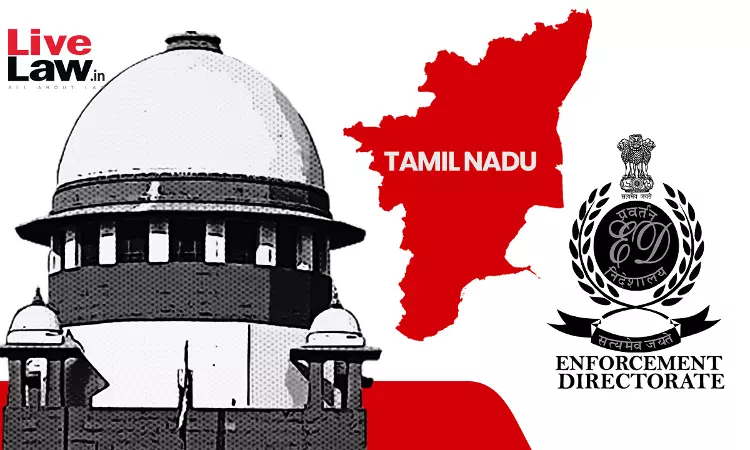How Can State File Writ Petition Challenging ED Summonses To District Collectors? Supreme Court Asks Tamil Nadu
Awstika Das
23 Feb 2024 12:48 PM IST

Next Story
23 Feb 2024 12:48 PM IST
The Supreme Court on Friday (February 23) questioned the Tamil Nadu government's standing to file a writ petition before the Madras High Court challenging summonses issued by the Enforcement Directorate (ED) to the district collectors in connection with the alleged illegal sand mining- money laundering cases.A bench of Justices Bela M Trivedi and Pankaj Mithal was hearing a special leave...
